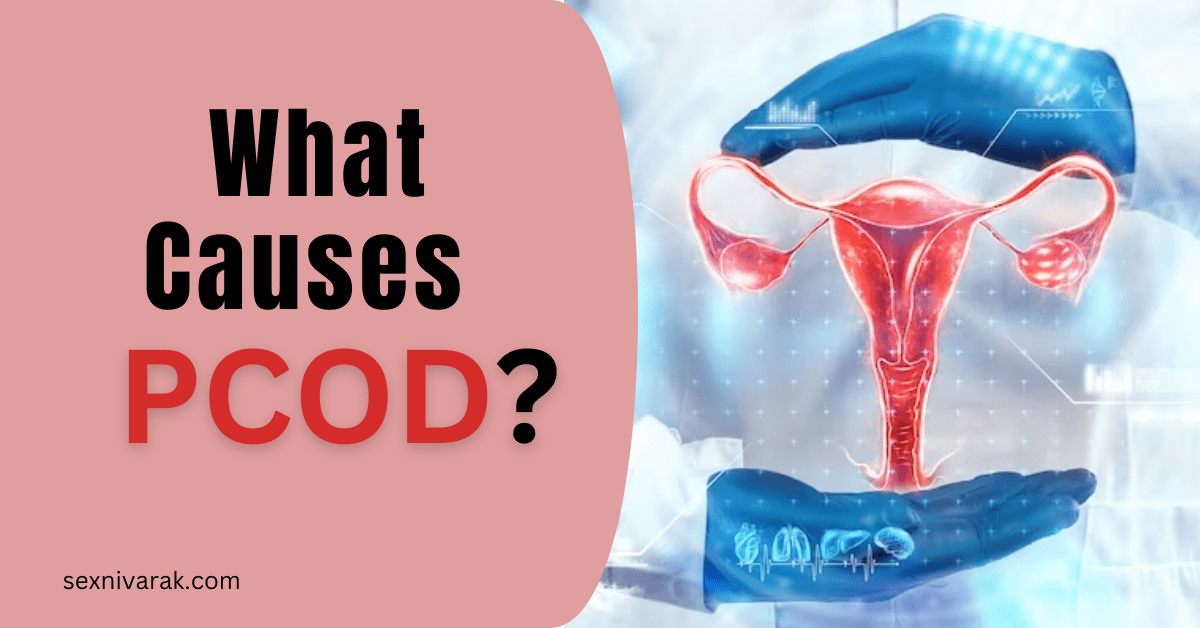Polycystic Ovarian Disease (PCOD) is a hormonal disorder that is one of the Causes of Pcod in women to have cysts on their ovaries. The cysts are small, fluid-filled sacs that can interfere with the normal functioning of the ovaries.
The condition is often caused by an imbalance of hormones, such as an excess of androgens, which can disrupt the body’s natural processes. It can also be caused by genetic factors, or by lifestyle factors such as diet and exercise.
PCOD is mainly caused by a combination of hormone imbalance and genetic predispositions.
Each month, the two ovaries alternately release mature, fertile eggs during a normal menstrual cycle.
On the other hand, in people with PCOD, the ovaries frequently release either immature or partially-mature eggs, which could also eventually result in cysts (small sacs filled with liquid). As a result, these eggs are unable to be fertilized, leading to infertility in many cases of PCOD.
In-depth What are the Causes of Pcod (Polycystic Ovarian Disease)
PCOD can be caused due to 2 major reasons: genetically inherited and bad lifestyle.
- Genetically Inherited

A child or woman can inherit PCOD genetically. This is because PCOD is caused by a combination of genetic and environmental factors and the genes that Causes of Pcod can be passed down from generation to generation.
This means that if your mother or grandmother had Polycystic Ovarian Disease (PCOD), you are more likely to have it as well. In these cases, it is important to take precautionary measures to help prevent the onset of PCOD.
On the other hand, the condition can also be transferred to you through your paternal side of the family.
You might be confused right? Your father is male and can’t menstruate, so how can you get this problem from your paternal side?
So, understand this with a scientifically proven example:
If your father had diabetes before you were born, there is a good chance that the insulin resistance gene has been transferred into you (fetus). Due to this insulin resistance gene, the fetus turned girl (you) tend to get PCOD or PCOS despite being slim or fat no matter what.
- Bad Lifestyle

Polycystic Ovarian Disease is more of a lifestyle disorder, and there is a great chance that you have it if you have the following bad habits:
- Sedentary Lifestyle. An inactive lifestyle or sedentary lifestyle is a lifestyle with lots of sitting and laying with low or no exercise. It can mostly be found in young adults who go to work and sits against a bright LED screen that not only depletes their eye power but also has the power to cause the condition of PCOD.
How to improve Sedentary Lifestyle?
Take a walk or ride a bicycle to your office or respective destination apart from driving a car/bike or riding an uber. Take time to engage yourself in small walks during office hours, especially after lunch.
Try not to become a couch potato and improve your inactive lifestyle to prevent PCOD Causes and other complications.
- Lack of exercise in your schedule. If you are someone who feels lazy with the thought of working out then this might be a reminder for you to step up now or else there are major repercussions you can face in the coming future.
Saving and downloading various exercise videos and not doing them is something most people do. But if you can try you can do it.
Lack of exercise can causes of PCOD along with obesity, high cholesterol, high blood pressure, stroke, metabolic syndrome, and more.
It’s better to have a healthy and active lifestyle to prevent Polycystic Ovarian Disease (PCOD). You can try simple exercises and Yoga. The above-mentioned causes can be risky if not cured on time. Along with an active lifestyle it is strongly recommended to not have any sort of addictions- like alcohol, smoking, and binge eating.


